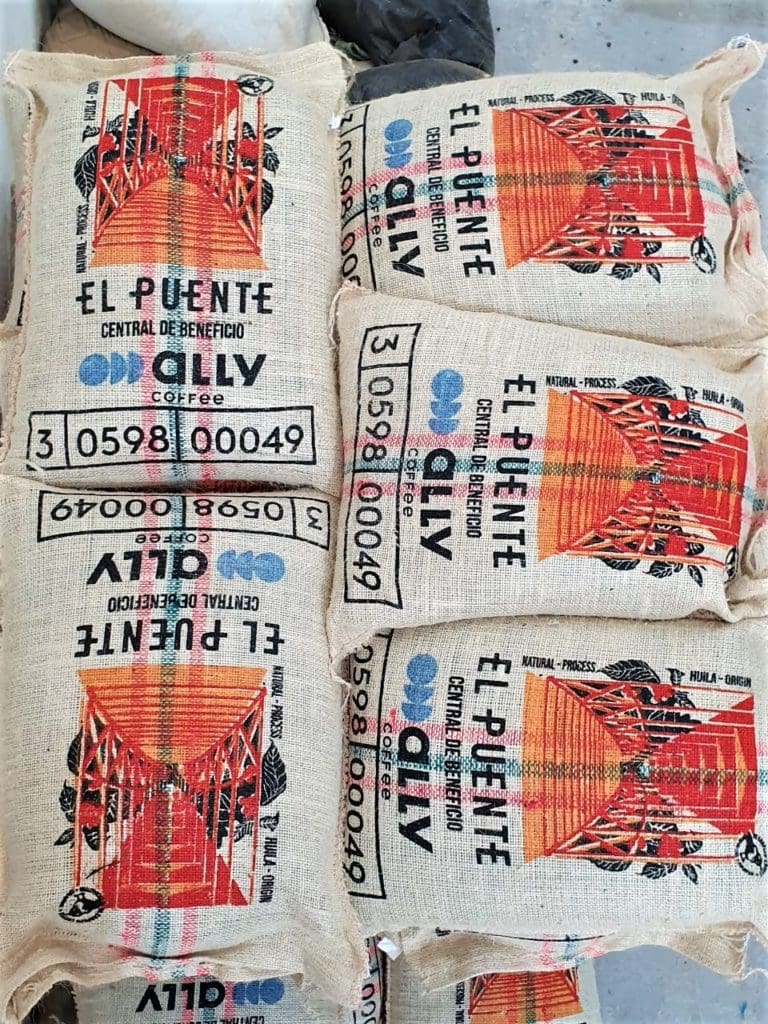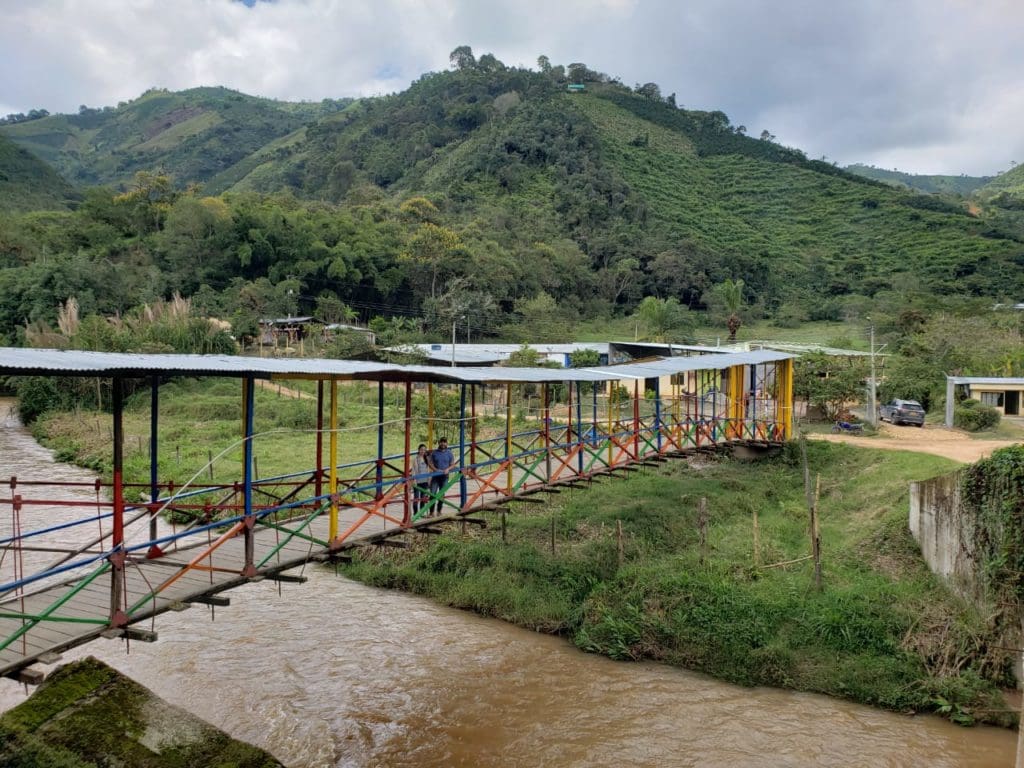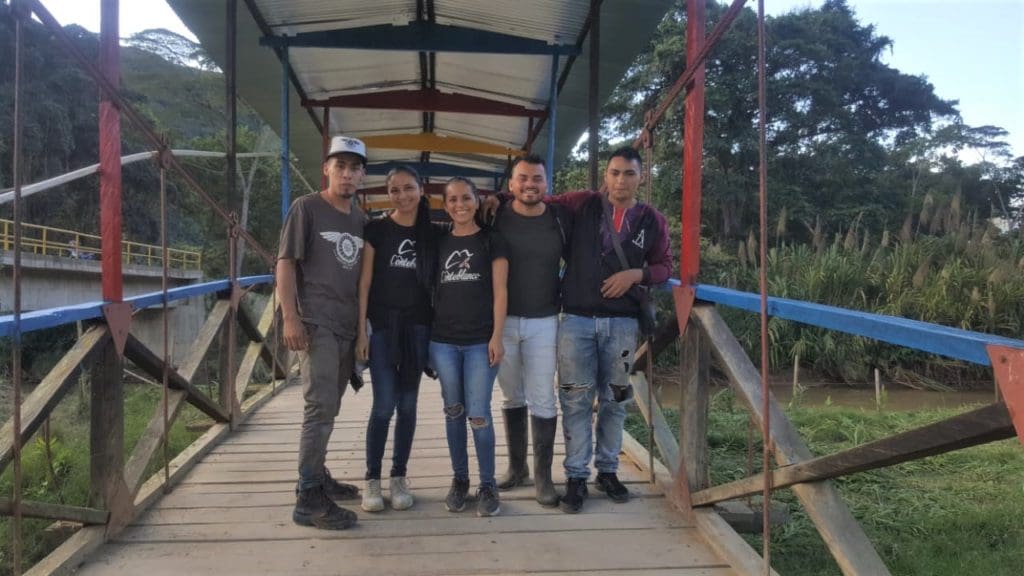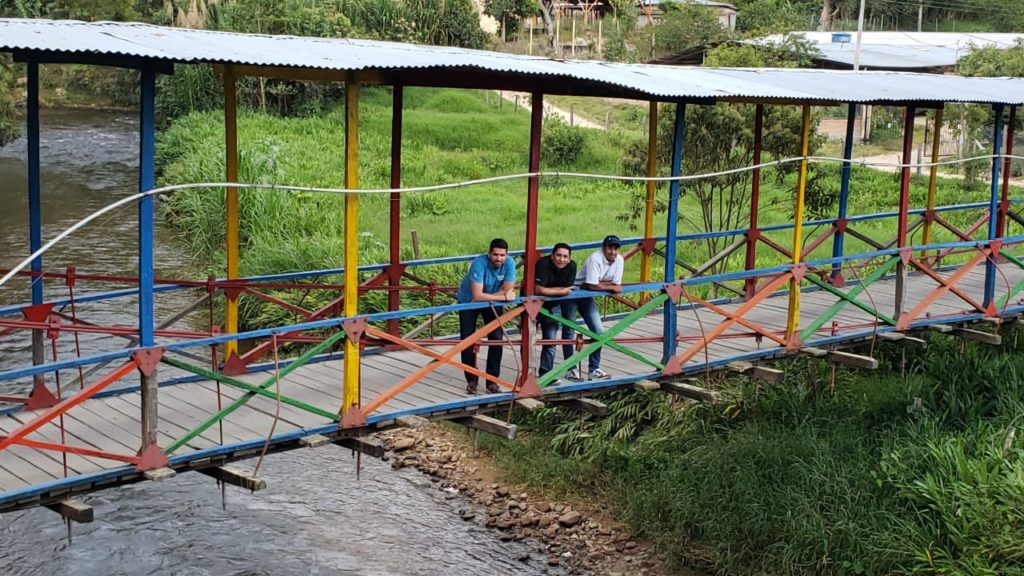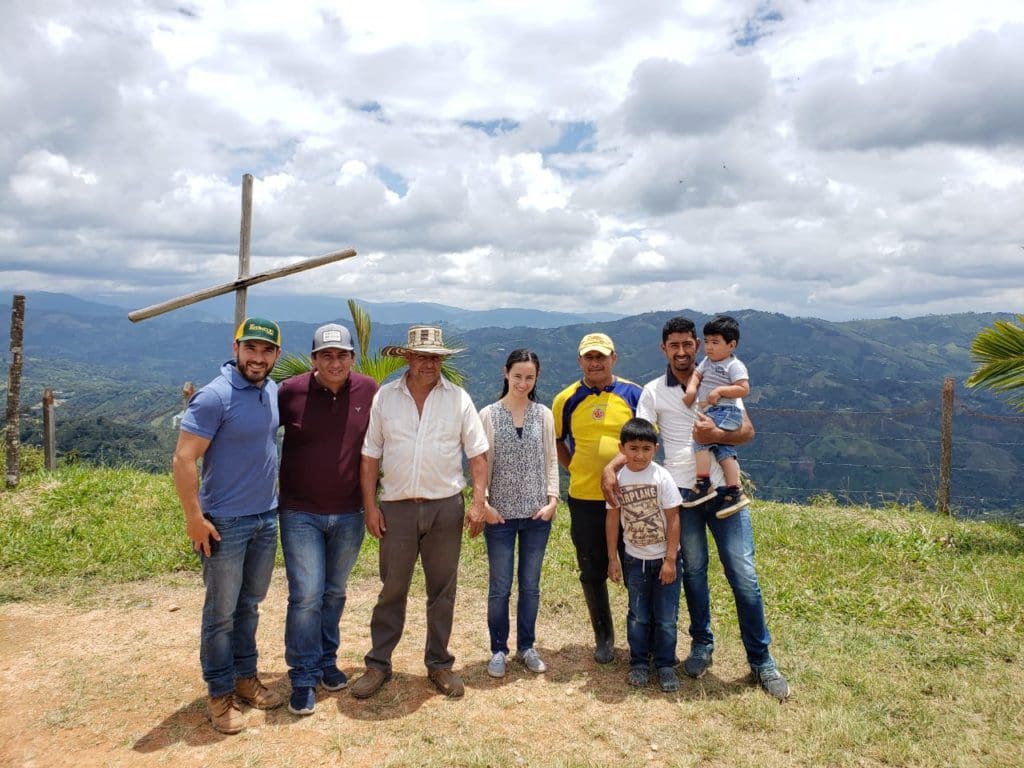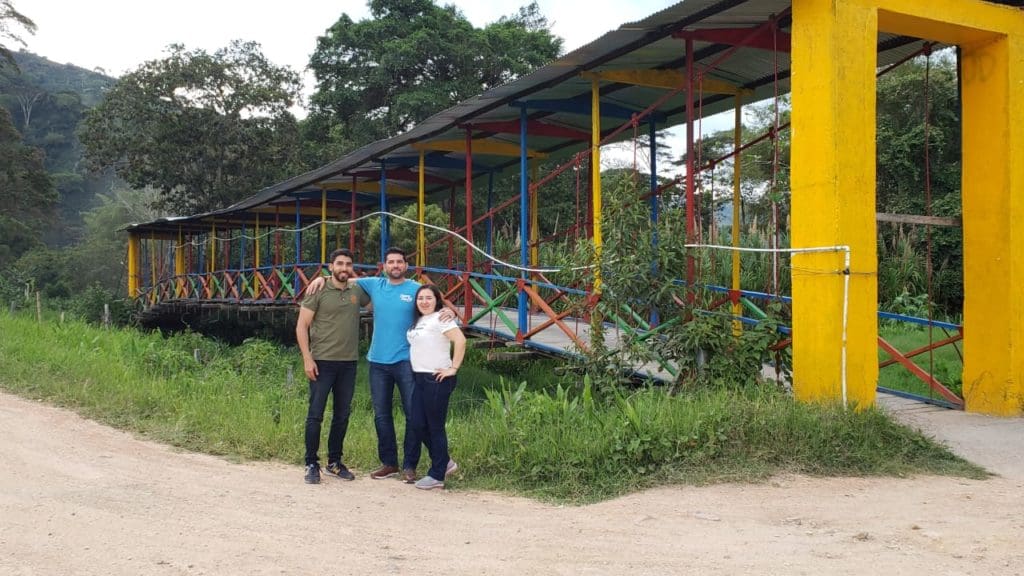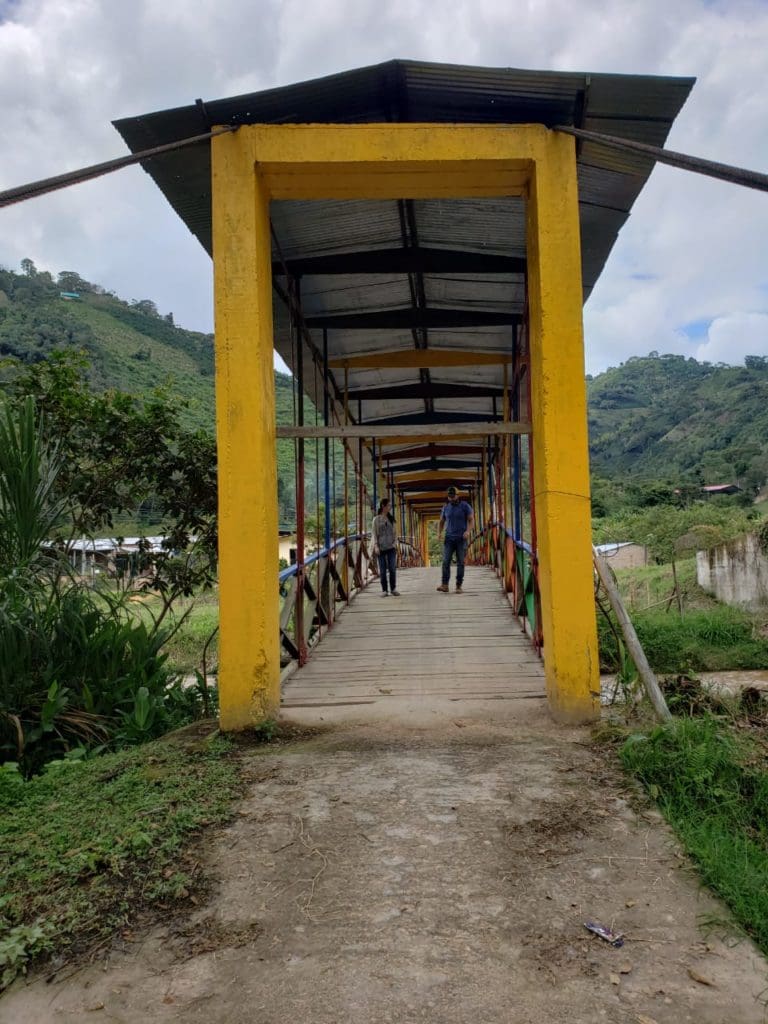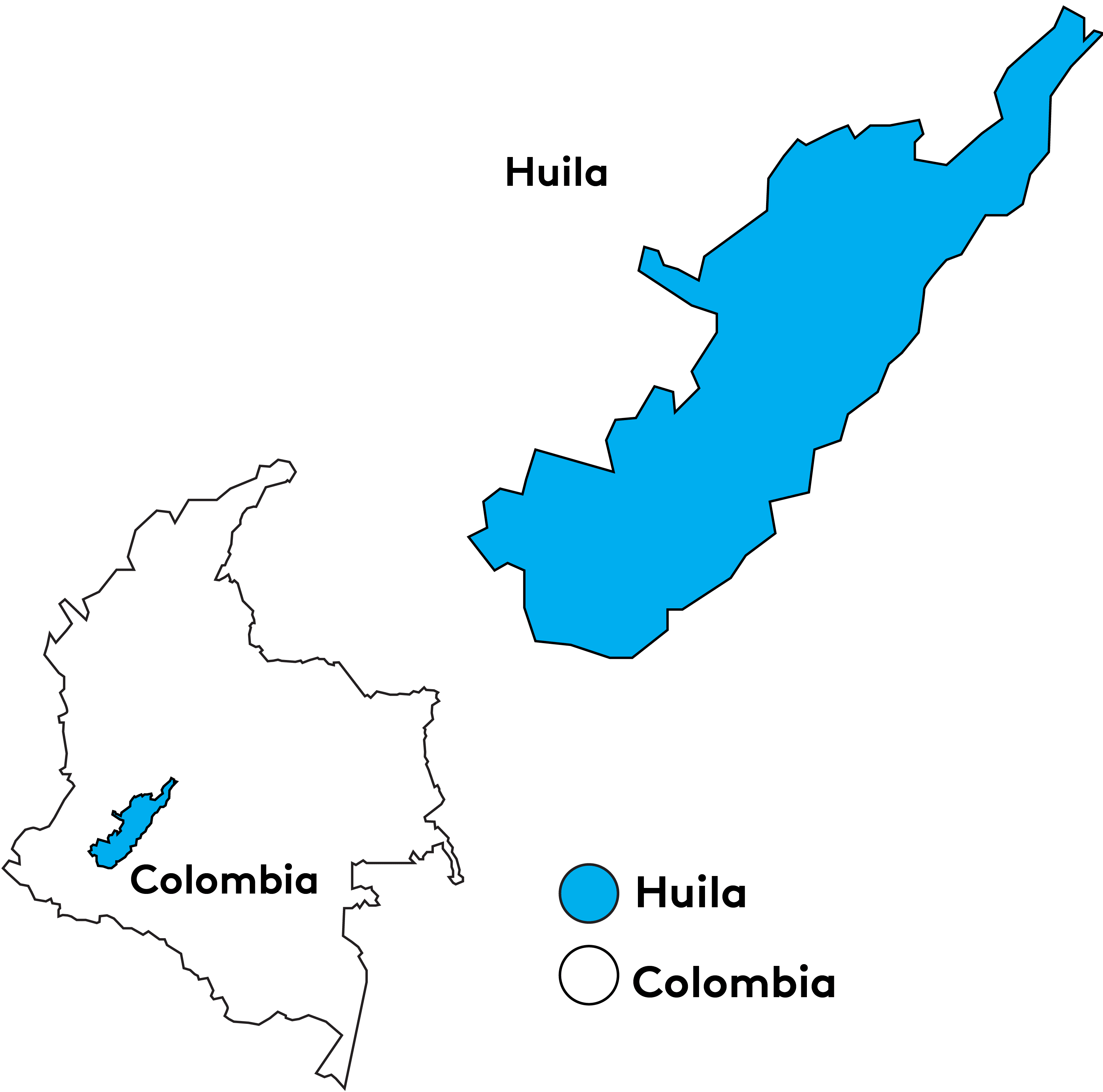The El Puente processing facility is located in Fundador township, Palestina, Huila, Colombia. “El Puente” translates to “the bridge”, named not only for the footbridge that spans a nearby river, but more importantly representing the connection that the processing facility creates between local smallholder producers and the global specialty coffee industry. The facility is just a 20 minute drive to the coffee centers of Pitalito and downtown Palestina, and is strategically located in an area with a high density of coffee to allow easy delivery of cherries by local coffee producers.
The facility is supported by community investment in the sustainable development of rural areas and is part of a social impact project started by Clearpath Coffee in 2018 with the goal of addressing common problems faced by smallholder coffee producers in the region, including:
– Lack of post-harvest infrastructure – it’s common for smallholder producers to struggle with their processing capacity during harvest season, lacking the drying and storage space needed to handle their entire crop. This can result in defects or the need to sell wet parchment coffee at a discounted rate.
– Lack of financial resources – harvest is a cash-demanding period, with producers often needing to hire additional labor a month ahead of being able to sell their dried coffee, resulting in the need for loans or potentially selling wet parchment at a discounted rate to solve cash flow problems.
– The risk of adopting sought-after processing methods – post-harvest processes that have become popular with specialty coffee drinkers—for example Honey, Natural, and experimental fermentation processes—are still very new to many producers in Colombia, where Washed processing has been the tradition for more than a century. While producers have the potential to earn higher prices for these other processing methods, they also assume the risk of damage and defects to the coffee as they experiment to yield the best results for their crop.
El Puente addresses these problems by buying freshly harvested cherries from allied local smallholders, paying a price equivalent to dry coffee, and assuming the risk of processing and connecting coffees to the right buyers around the world.
El Puente is an ongoing partnership between many actors in the local coffee sector surrounding Palestina, including:
– 240 allied coffee producing families in the Palestina, Pitalito, and San Adolfo municipalities
– Claudia Samboni and Rodrigo Sanchez, local coffee producers and owners of Aromas del Sur
– Clearpath Coffee, a specialty coffee exporting company
– Ayda Samboni and Yarley Calderon, who manage processing, daily operations, and the team at El Puente
– Felix Samboni, community leader and coffee producers with more than 40 years of experience, who works with contributing producers on this innovative project
– Aromas del Sur Mill, the state-of-the-art dry mill operated by Aromas del Sur and Clearpath Coffee where coffee from El Puente is milled and packaged for export
– Yunus Social Business Colombia and Agora Partnerships, which helped finance construction of the mill and provides working capital
El Puente processes coffee using Honey and Natural processes. While the facility chooses not to process Washed coffees due to their lack of the water treatment equipment needed to responsibly manage wastewater, El Puente partners with producers who complete their own Washed processing in order to provide good market access and a fair price for their work. By focusing on Honey and Natural processes, the facility uses 80% less water than what would be required for Washed processing instead.
This lot of El Puente is Honey processed, beginning with a 24-hour fermentation in cherry in the coffee harvest sacks. Next, floaters are removed and the remaining healthy coffee cherries are depulped to separate the seed from the fruity outer skin of the cherry. Coffee dry ferments in an open tank for another 24 hours before being transferred to the solar dryer for 3-5 days. The remaining mucilage left on the beans during the fermentation and drying stages adds sweetness to the final cup. The drying process is completed in a mechanical dryer at a maximum temperature of 35° C until reaching 10.5-11% humidity.
